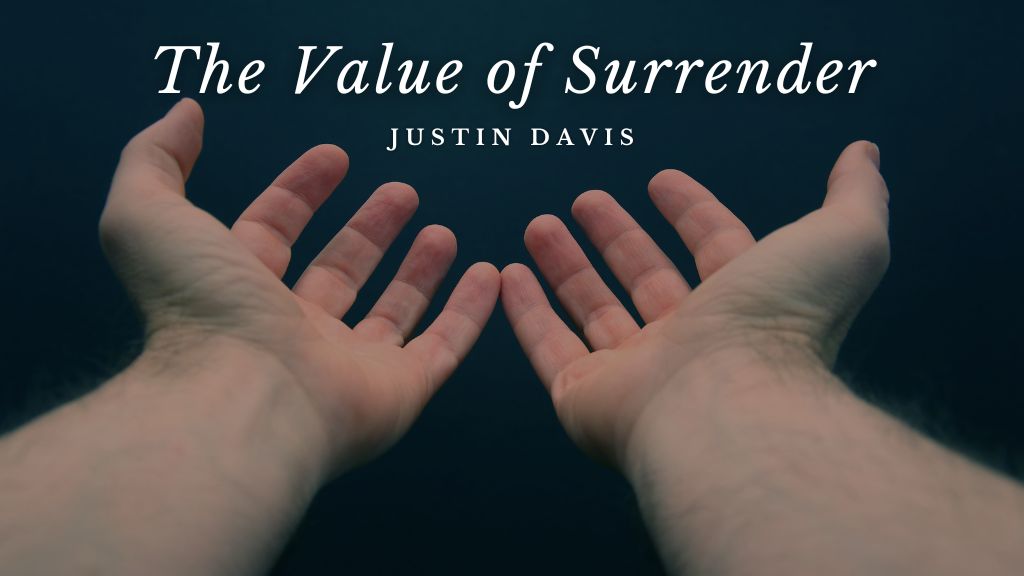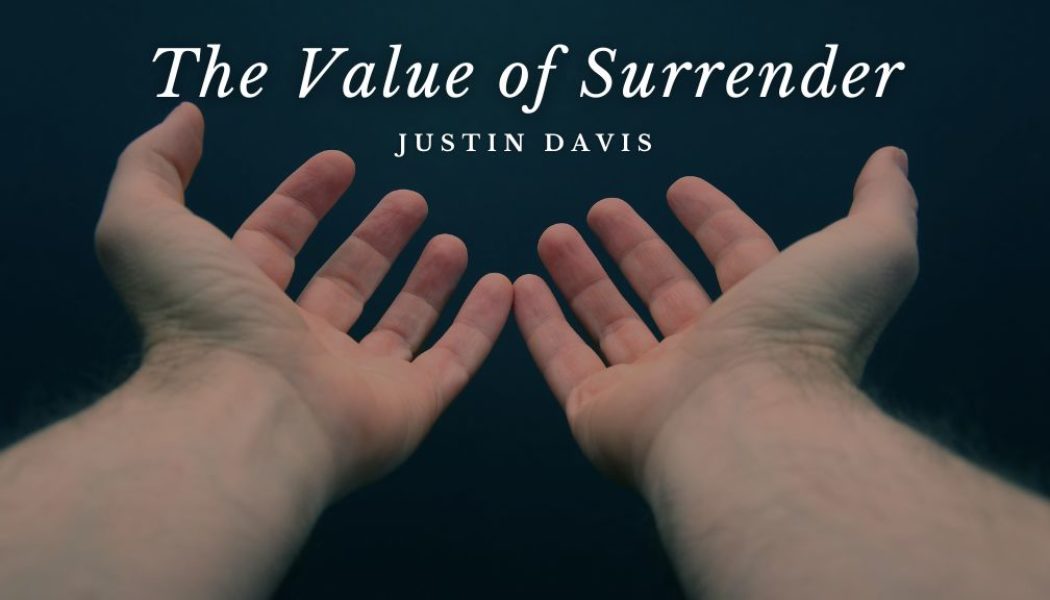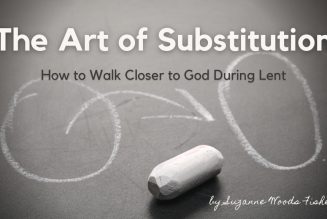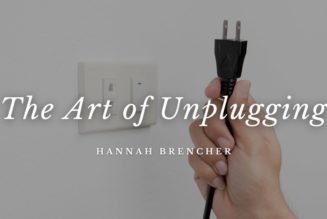by Justin Davis

“You have invaded the innermost core of my being, and Your Spirit is taking over more and more territory within me. As Your Word teaches, where the Spirit of the Lord is, there is freedom. I rejoice in the freedom I have found in You, Jesus. And I surrender gladly to Your conquering Love!”
– Jesus Listens, July 4th
When I was eight years old, my family lived in a house on a hill with a steep gravel driveway. Water ran down the hill when it rained, making huge, oval mud puddles on each side of the grass-grown median of the driveway.
Dad’s Disciplinary Method
One day, coming home from work, my dad caught me playing in one of those irresistible puddles. He wasn’t as concerned about me playing in the mud as about where those puddles were located—just a few feet from the county road connected to our driveway. My proximity to the road was his biggest concern. His heart was to protect me, but in my mind, he just wanted to keep me from the fun and thrill of playing in the puddle.
My dad had caught me playing in mud puddles before, but until that day, the only consequences had been verbal warnings. This time, though, he didn’t say anything; he just took off his belt and whacked me with it several times up the driveway.
Depending on your life experience, you may find the physical nature of my dad’s disciplinary method appalling. I get it. But this was the early 1980s—before time-outs and grounding children from electronics. I think of it as the “spare the rod, spoil the child” era (see Proverbs 13:24).
Modifying My Behavior
Regardless of your view of corporal punishment, that was the last time I played in a mud puddle. I didn’t stop liking mud puddles, I just never wanted to be spanked like that again. That is my first memory of behavior modification.
Over the next twenty years, I became an expert at modifying my behavior to meet others’ expectations. I had a specific way I acted at home, at church, on dates, and around friends.
After getting married, I quickly learned what my wife, Trisha, liked and didn’t like. I knew what would cause an argument and what would keep the peace. I learned how to deflect questions about sexual purity and pornography. I altered my behavior to avoid conflict. I apologized to make an argument go away, not to restore intimacy.
Transformational Change
Being skilled at behavior modification allowed me to compartmentalize my life, marriage, and relationship with God. I learned I could edit my behavior to meet others’ expectations without undergoing heart transformation. I believed I could behave my way into a right relationship with God, a healthy marriage, and life-giving relationships. But, man, was I wrong. Relying on behavior modification cost me everything.
Behavior modification brings incremental change when our greatest need is transformational change. Incremental change is doing your best and working your hardest to stay married or to not get divorced. Incremental change makes big promises but lasts only a short time. Incremental change is change you are in control of. Incremental change is you working harder to stop the things you keep messing up. Incremental change, at its core, has you at the center trying to be better today than you were yesterday. Incremental change tells you if you try hard enough, you can cuss less, drink less, click on pornography less, eat less, lose your temper less, spend less, lust less, lie less, cheat less. Incremental change is motivated by guilt and shame and feelings of incompetence and failure. It convinces you that if you can endure the pain of trying harder to cover up your sin and get better, then no one needs to know, you can overcome this. Incremental change doesn’t allow you to experience grace and forgiveness because you are constantly trying to make up for the sin in your life. Incremental change carries a small price tag up front, but it robs you for the rest of your life of the peace and joy and victory God longs to provide.
Hope Is Grace
There is another option. God offers transformational change. Transformational change is about surrender, vulnerability, transparency, humility, and dependency. Transformational change, at its core, aims to destroy you, and if you are willing to pay that price, it will dismantle every part of you. Transformational change is messy and bloody. It hurts deep, and it will cost you everything. It is pulling all your junk out and laying it on the table for all to see and not caring what they think about you. Transformational change is committed not just to dealing with the symptoms of your issues, but to peeling back painful layer after painful layer of your past, your dysfunction, and your sin, until the core problem is exposed.
Transformational change is recognizing that on your best day, you are a failure and a sinner, and that your only hope is grace. Transformational change is knowing you can never try hard enough to overcome your desire to drink, cuss, lust, gorge, lie, and cheat. What you can do is surrender to the God of resurrection power, allowing Him not only to destroy you, but to also bring you back to life. To be brought back to life, one first must die.
Humans have created incremental change because we don’t like the pain of transformational change. You don’t need incremental change in your relationship with God; you need transformational change. You don’t need an improved version of the old you; you need a brand-new you. You don’t need a slight improvement in your relationship with God; you need a complete transformation. The great news is that God offers to transform you. God offers to give you a new life.
The Bad News
I bet you want to change. You want to be different. I know that is the desire of your heart. You want a different marriage. You wish your relationships with your kids were different. You want to stop whatever it is you can’t stop. I do, too.
The bad news is that it will come at a severely high price—your complete self. But the life you will have on the other side of confession, repentance, pain, forgiveness, and surrender will be the life you have been pretending to have all the years you have tried to change a little at a time.
Maybe you are tired from trying to earn favor with God. Trying to be a good person. Trying to do more good things in your life than bad. Trying not to sin. Trying to fix your life. Maybe the best thing you can do today isn’t to try harder, but simply to surrender more. That is the path beyond behavior modification to heart transformation.
About The Author

Justin Davis is an author, speaker, and pastor and has dedicated his life to helping people experience life change through the power of authenticity. He co-founded RefineUs Ministries, where he shares his personal story with honesty and transparency, inspiring others to find the courage to do the same. Justin is author of the bestselling book, Being Real > Being Perfect: How Transparency Leads to Transformation (David C Cook). He is a sought-after speaker for numerous conferences, churches, and leadership events, inspiring audiences with a message of hope and transformation through the grace of Jesus.









